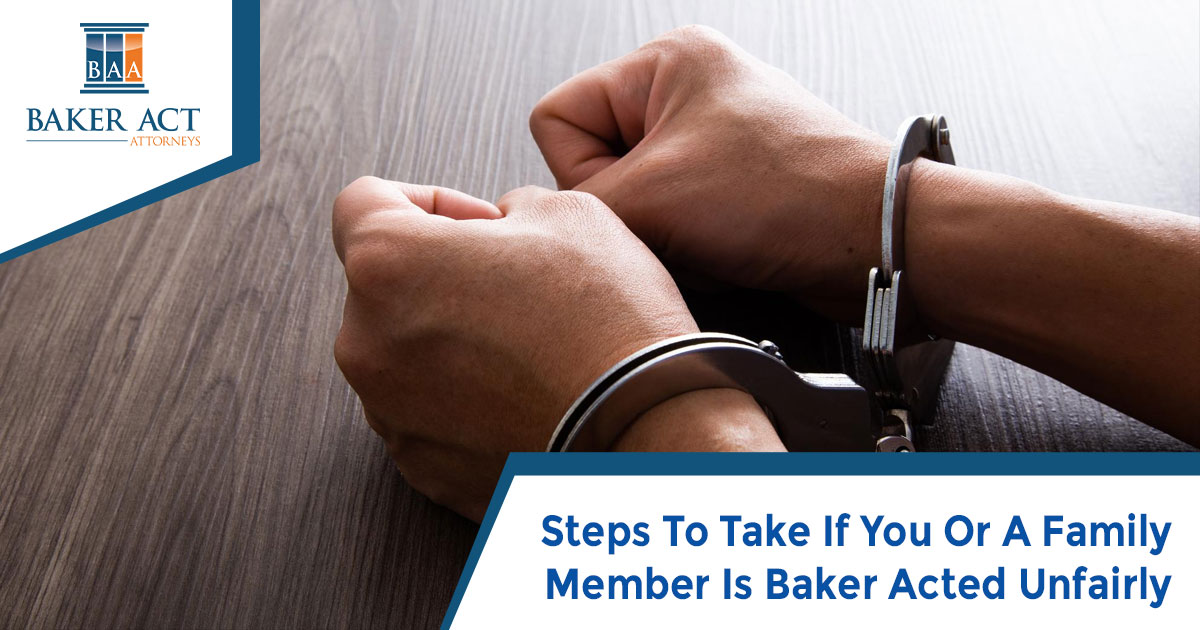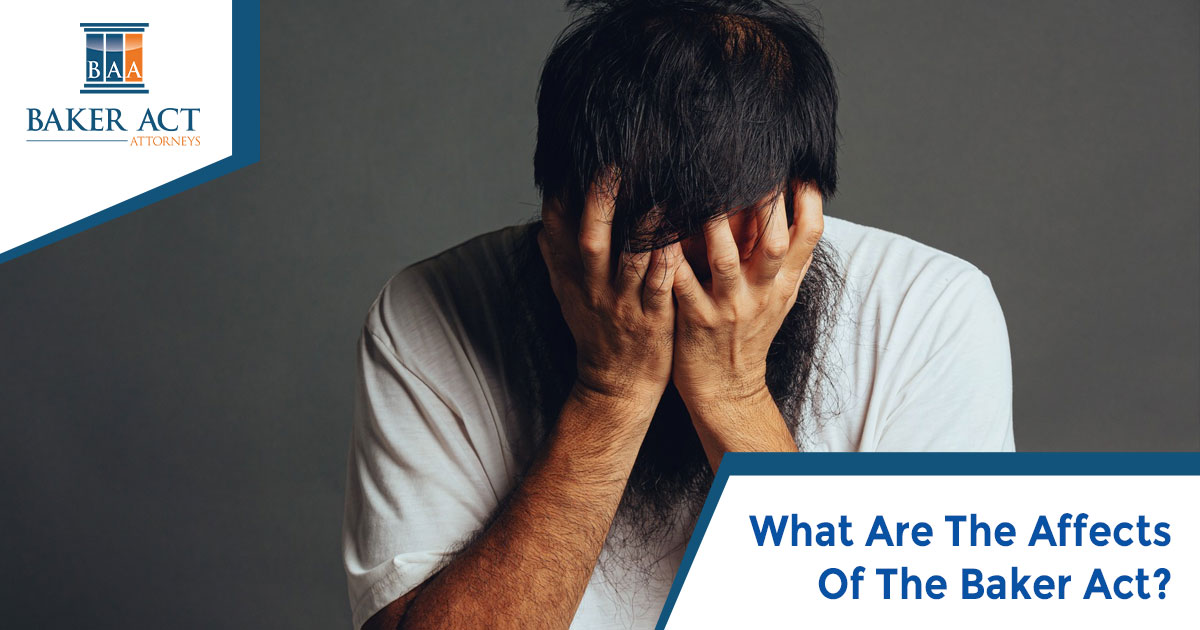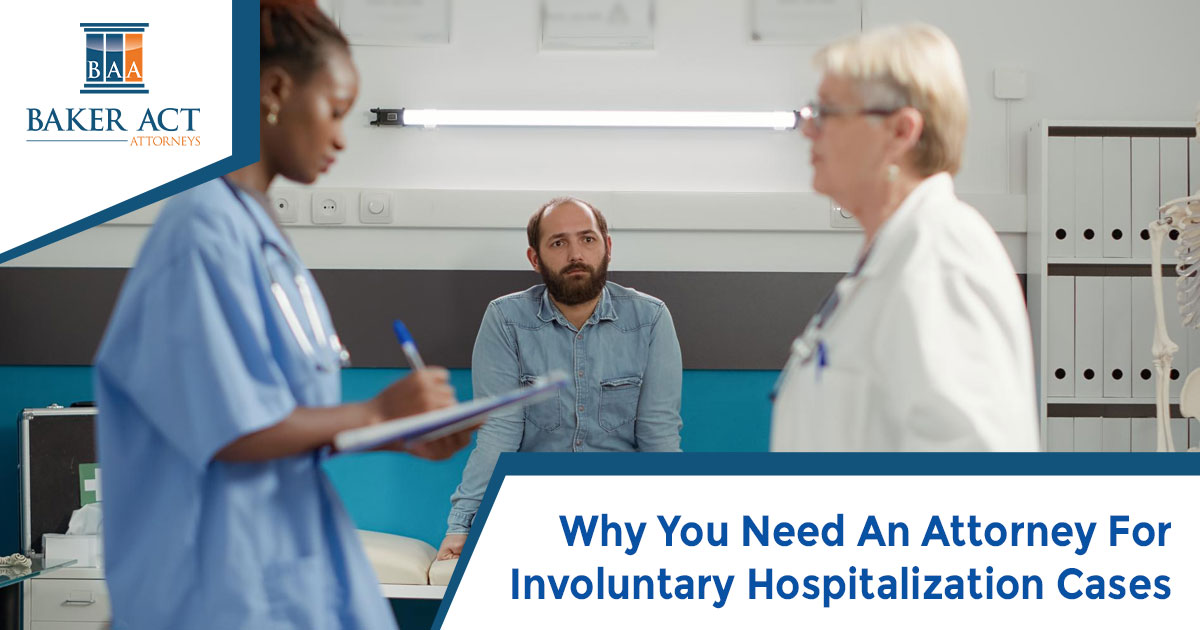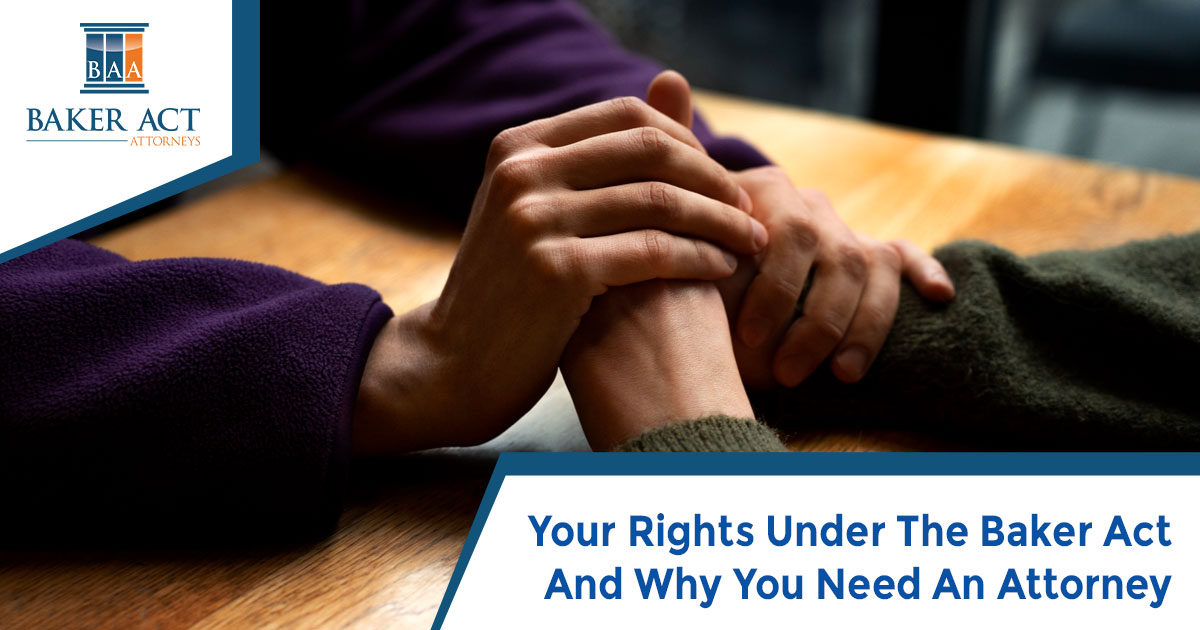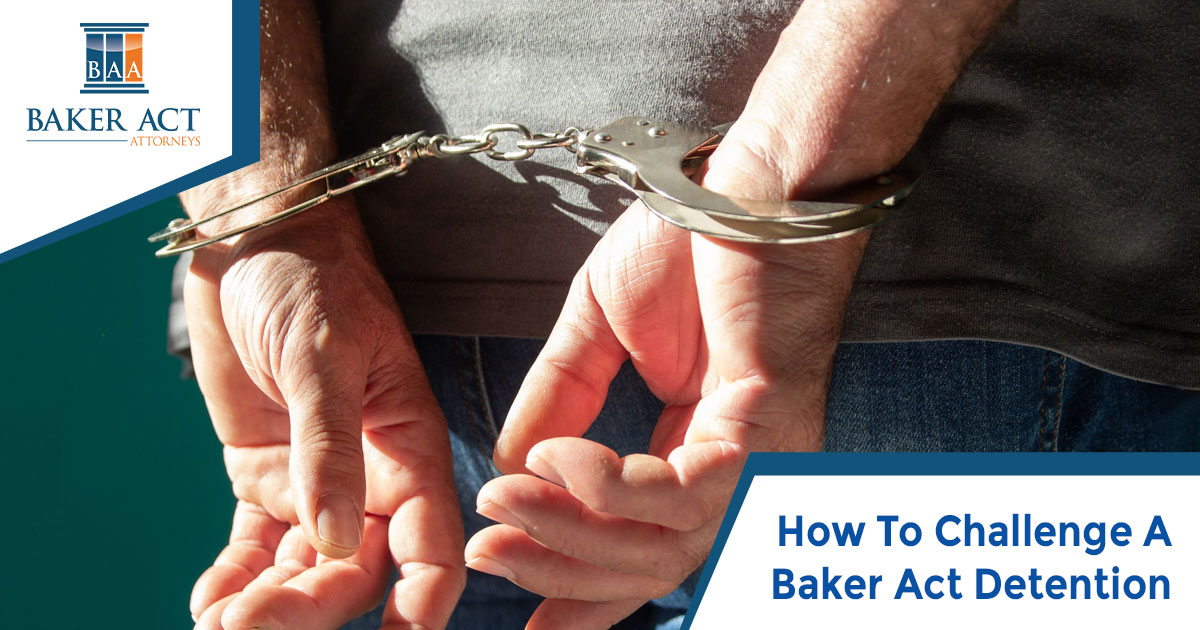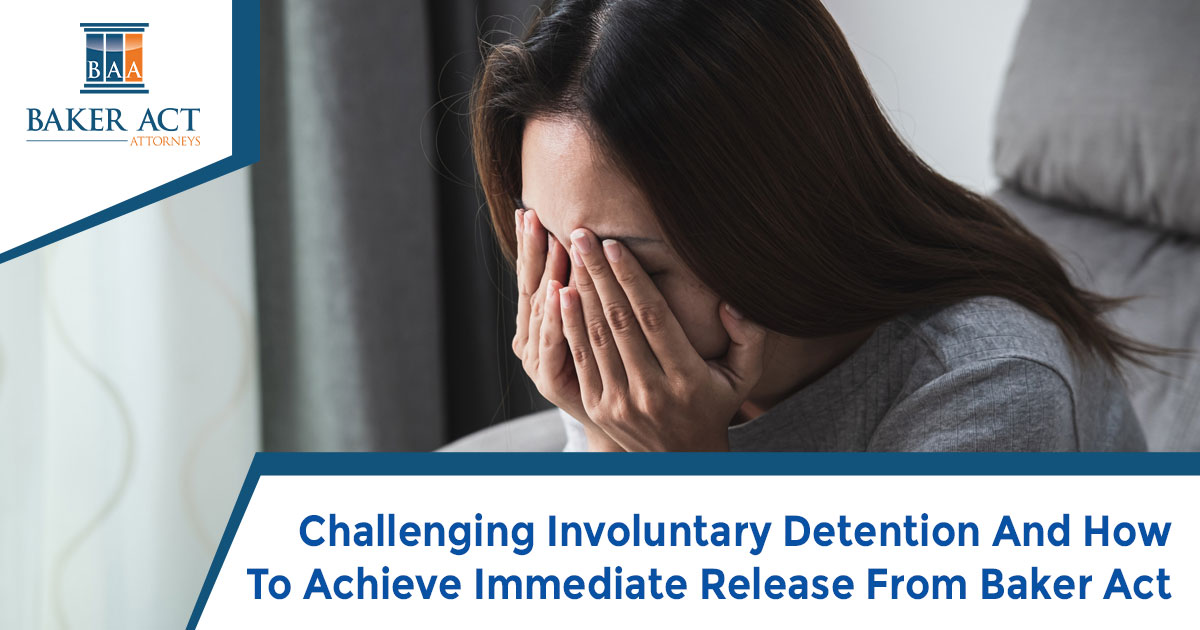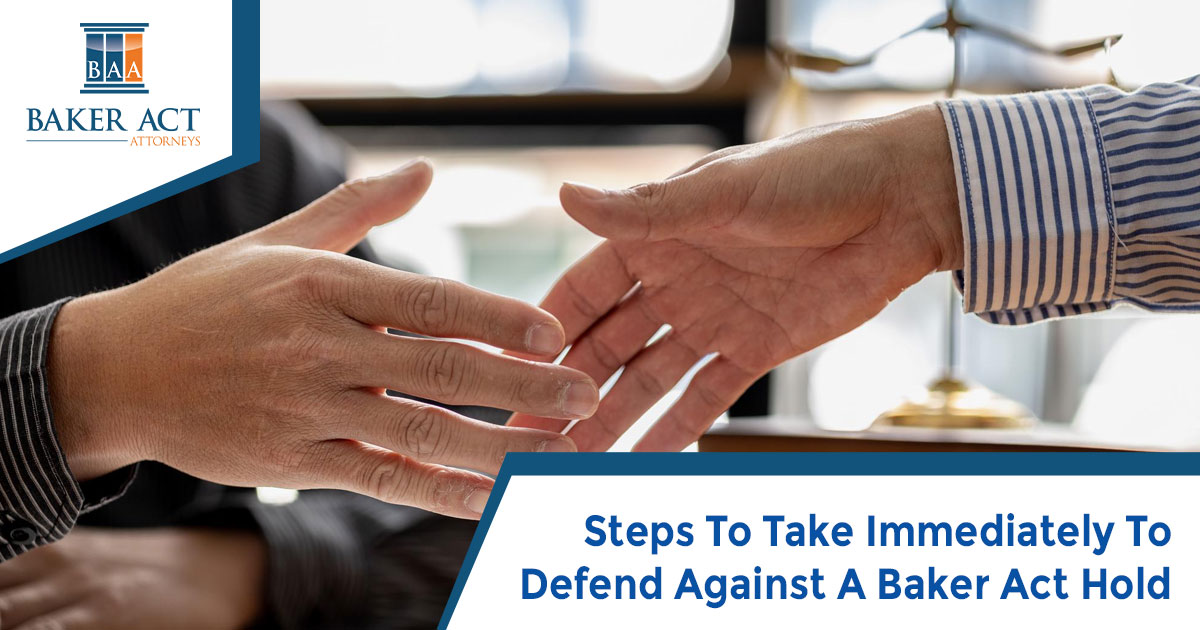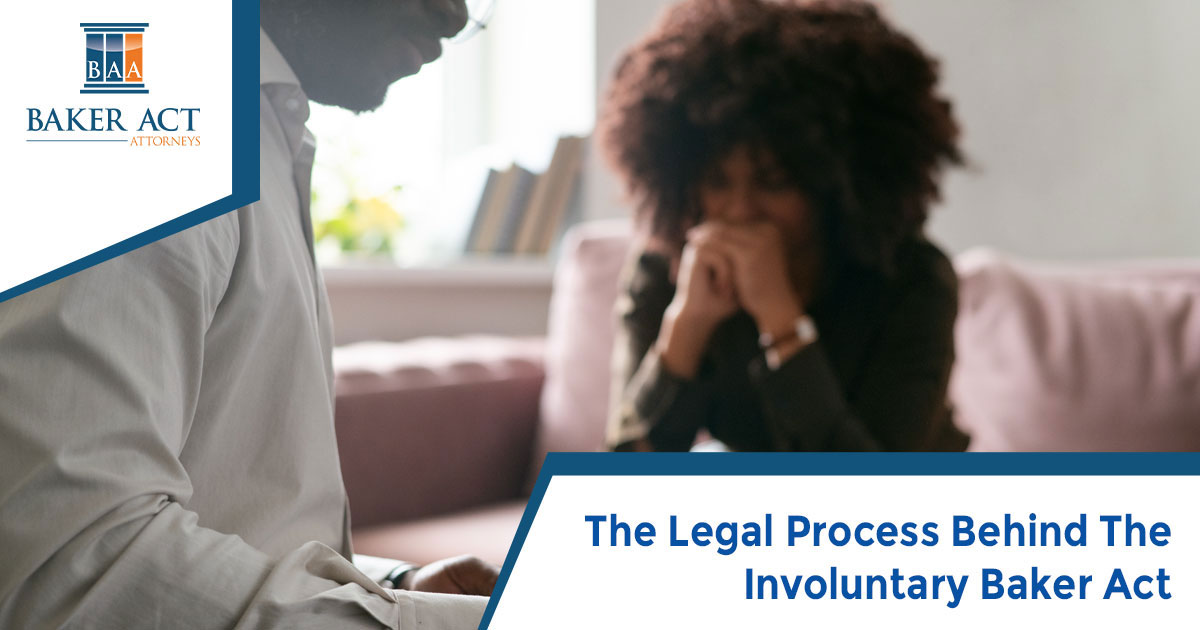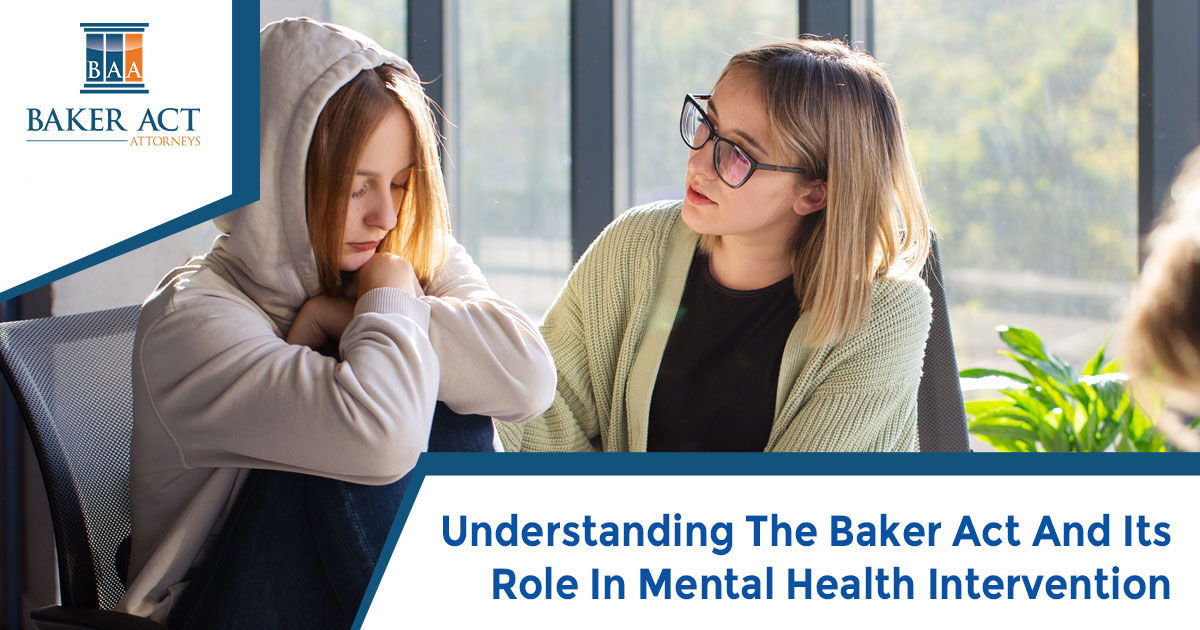Although millions of Americans struggle with mental health, veterans are particularly at risk. Given the nature of their work and the types of environments it puts them in, it’s no surprise that post-traumatic stress disorder (PTSD), depression, behavioral changes, and substance abuse commonly affect Florida’s more than 1.4 million veterans. Unfortunately, these veterans do not […]
Baker Act Law
Steps To Take If You Or A Family Member Is Baker Acted Unfairly
The Baker Act is a Florida law that allows a court, law enforcement officer, or qualified professional to initiate the temporary detention and involuntary examination of a person who is experiencing a mental health crisis and poses a risk of harm to themselves or others. In the decades following its passage into law, the Baker Act has […]
What Are The Affects Of The Baker Act?
The Florida Mental Health Care Act – commonly referred to as the Baker Act – has changed countless lives for the better. For many decades, its processes have been used to ensure that people in the depths of a mental health crisis are not abandoned by society, but are rather given the care they urgently […]
Why You Need An Attorney For Involuntary Hospitalization Cases
Involuntary hospitalization is a drastic measure that should only be taken in instances where someone is experiencing a mental health crisis. Whether you’ve been hospitalized against your will, have a loved one who has been hospitalized without grounds, or are considering bringing a court petition to hospitalize a family member who is experiencing severe mental […]
Your Rights Under The Baker Act And Why You Need An Attorney
The Baker Act is the centerpiece of Florida’s mental healthcare framework. It was enacted in 1972 with the objective of securing the rights of those undergoing involuntary mental health treatment in Florida’s psychiatric facilities while also ensuring that they receive the help and care they need. However, as an experienced Baker Act attorney will tell you, the […]
How To Challenge A Baker Act Detention
Being wrongfully detained under the Baker Act can be a highly distressing experience. If you (or a loved one) have been improperly detained under the Act, you need to understand your legal options as soon as possible so that you can move quickly to secure your release. Challenging a Baker Act detention can be complicated and stressful […]
Challenging Involuntary Detention And How To Achieve Immediate Release From Baker Act
Every year, thousands of Floridians are involuntarily detained under the Baker Act. While many of these interventions are life-saving, and can ensure that seriously mentally ill people receive the care they desperately need, this is not always the case. Sometimes, a person who does not meet the legal criteria for involuntary detention is unlawfully held […]
Steps To Take Immediately To Defend Against A Baker Act Hold
Finding out that your loved one is being subjected to a Baker Act hold can be a distressing and bewildering experience. When you don’t know where to turn to secure your loved one’s release, contacting an attorney who has expertise in defending against Baker Act holds should be the first step you take. The sooner you act […]
The Legal Process Behind The Involuntary Baker Act
Navigating Florida’s mental health laws can be a complex exercise, even for those with years of experience in the field. The Baker Act is only one part of this legal framework, but it is the most frequently misapplied and misunderstood. At Baker Act Attorneys, we recognize that knowledge is power – that’s why we’ve compiled […]
Understanding The Baker Act And Its Role In Mental Health Intervention
The Baker Act is the cornerstone of Florida’s mental health legislation. It plays an important role in helping those struggling with mental illness to access the help they need, and in some cases, it is a life-saving intervention. If you have a loved one with a mental illness, developing a basic understanding of the Florida Baker […]


